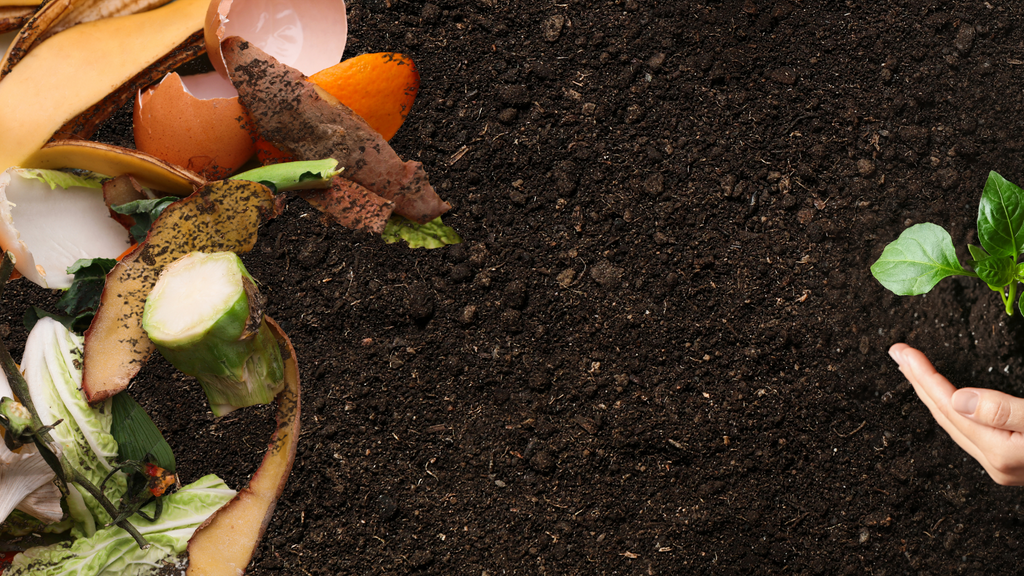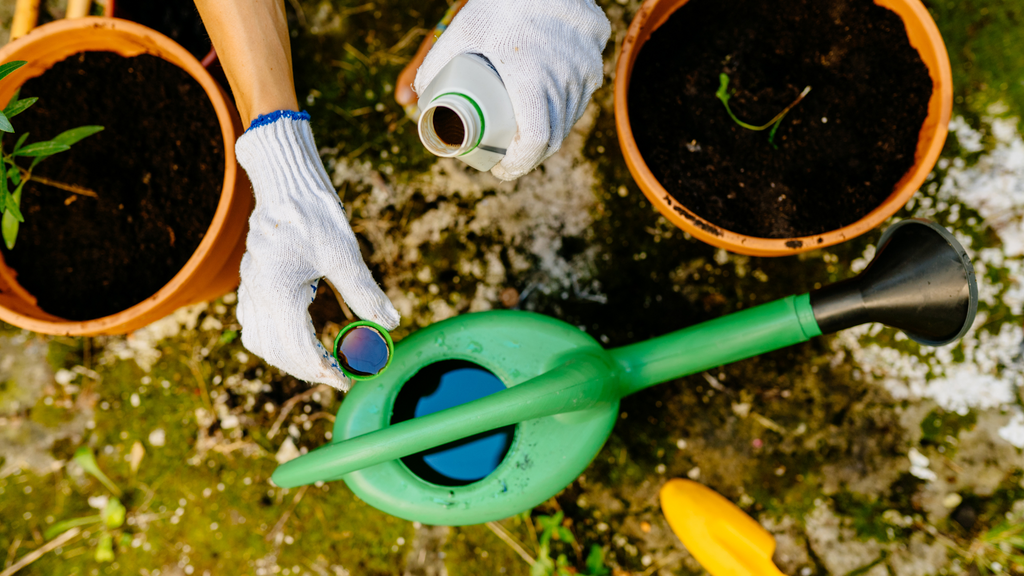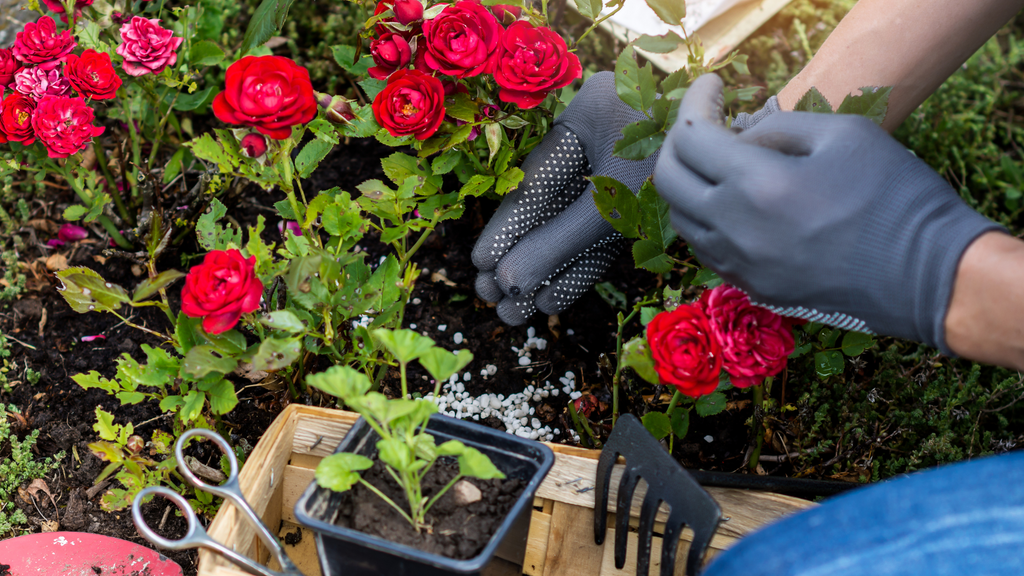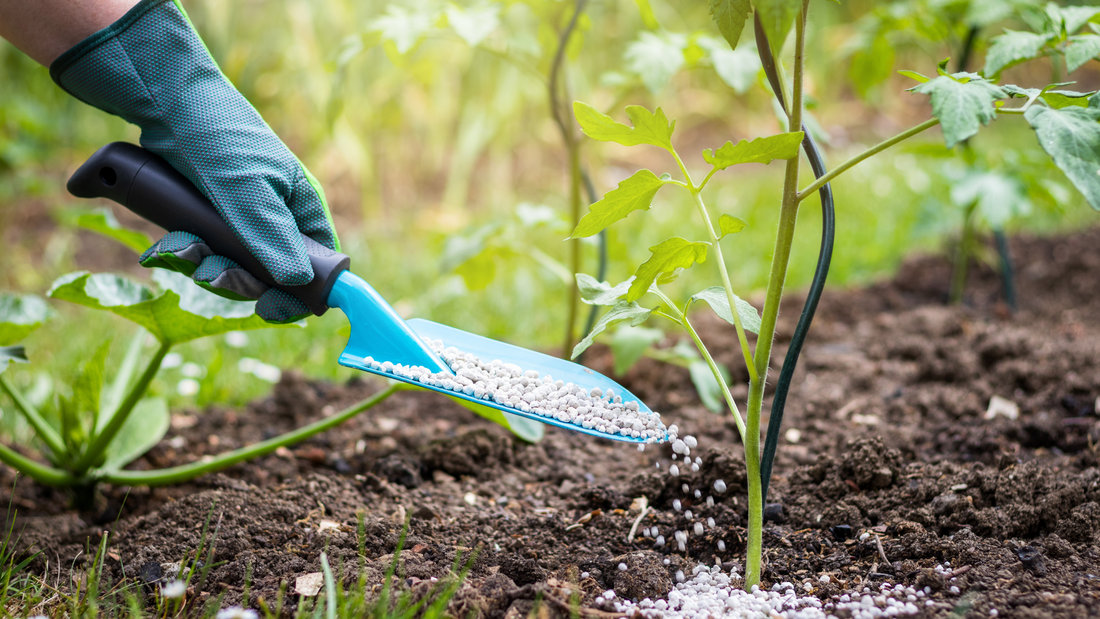Gardening in Bettendorf, like anywhere else, requires careful attention to soil health and plant nutrition, whether you're tending to a vibrant flower garden, nurturing a lush lawn, or cultivating crops on your farm, and when it comes to feeding our landscapes here in the Quad Cities, a question we often get asked is: "What's the difference between natural and synthetic fertilizers?" In this blog, we'll explore the ins and outs of natural vs synthetic fertilizers, shedding some much-needed light on their composition, benefits, and application methods.
Ready for a happier landscape? Then let's dig in!

Exploring the Composition and Benefits of Natural Fertilizers
Natural—or organic—fertilizers are derived from living organisms and other natural sources such as compost, manure, bone meal, and seaweed extract. One of natural fertilizers' key advantages lies in their organic origins, which contribute beautifully to soil health and microbial activity. When incorporated into the soil, organic fertilizers release their bounties slowly, providing a steady supply of nutrients to plants over time. This gradual release also improves soil structure and water retention, promoting sustainable gardening practices.
Using fertilizers in Davenport and other nearby areas necessitates an understanding of sustainable gardening practices, and natural fertilizers align perfectly with this ethos. By harnessing the power of organic matter, gardeners can enrich their soil while minimizing environmental impact. Unlike synthetic fertilizers, which may leach chemicals into groundwater or disrupt your soil's microbial balance, natural fertilizers support biodiversity and long-term soil fertility. We recommend Fertilome Fish Emulsion Fertilizer for a solid natural fertilizer ideal for vegetables, berries, trees, shrubs, roses, and flowers, or Espoma Holly Tone for some wholesome organic care for your evergreens.

Digging into Synthetic Fertilizers
In contrast to their natural counterparts, synthetic fertilizers are manufactured through chemical processes, typically using mineral compounds like ammonium nitrate, potassium sulfate, and superphosphate. These fertilizers contain concentrated nutrients in readily available forms, making them highly effective for quick plant uptake. While synthetic fertilizers provide an immediate nutrient boost, they may also pose risks to soil and environmental health.
Although synthetic fertilizers offer convenience and rapid results, overreliance on these chemicals can lead to soil depletion and nutrient imbalances. It is important to build healthy soil for a more sustainable garden over the long term. Synthetic fertilizers are best used on patio containers and hanging baskets.
Matching Fertilizers to Your Garden's Needs
When it comes to fertilizers, one size doesn't always fit all. Different plants have unique nutritional requirements, and understanding these needs can help you select the most suitable fertilizers for your garden. Here's a breakdown of some key differences:

- Flowering Plants: Flowering plants benefit from fertilizers rich in phosphorus, which promotes robust root development and flower formation. Choose organic options like bone meal or bat guano for a slow-release phosphorus boost that won't burn delicate roots.
- Vegetables and Fruits: Nutrient-dense crops like tomatoes, peppers, and strawberries thrive with fertilizers high in potassium, which supports fruit production and overall plant vigor. Use Espoma Tomato Tone or Fertilome Fish Emulsion to provide a balanced blend of essential nutrients for optimal yield and flavor.
- Trees and Shrubs: Established trees and shrubs require a steady supply of nitrogen to sustain their growth and foliage. For best results, use natural fertilizers such as compost or Espoma TreeTone to nourish your soil and encourage lush greenery. Slow-release granular fertilizers are also ideal for long-term nutrient provision, especially for larger landscape specimens.
- Lawns: Maintaining a lush, green lawn demands proper fertilization throughout the growing season. Look for lawn-specific fertilizers formulated with balanced nitrogen, phosphorus, and potassium (N-P-K) ratio, like our Espoma Organic Lawn Food Spring Lawn Booster. Granular fertilizers with a 4-1-2 or 3-1-2 ratio are well-suited for promoting healthy turf without excessive top growth. Scotts 4-Step Lawn Program is a comprehensive season-long program suitable for most lawns.
- Seasonal Fertilization: Adjust your fertilization schedule to align with your garden's changing needs. Apply nitrogen-rich fertilizers in spring to stimulate new growth, phosphorus-heavy blends in early summer to support flowering and fruiting, and potassium-focused formulations in late summer to enhance plant resilience before winter.
By tailoring your fertilizer choices to the specific requirements of your plants, trees, shrubs, and lawn, you can optimize your garden's nutrient uptake and promote its overall health.
Remember to follow your chosen fertilizer's package instructions for proper application rates and timings to avoid overfertilization and minimize environmental impact.
The debate between natural vs. synthetic fertilizers underscores the importance of informed decision-making in gardening. While both options have their merits, Bettendorf gardeners can maximize their landscape's health and productivity by adopting a balanced approach. Incorporating natural fertilizers promotes soil health and sustainability, while the occasional use of synthetic fertilizers can provide targeted nutrition for specific plant needs.
By embracing sustainable gardening practices in the Quad Cities and beyond, we can cultivate thriving ecosystems that benefit both our plants and the environment. Need more expert advice on natural vs synthetic fertilizers? Stop by Wallace's Garden Center today, and we'll get you started with the best food for your landscape at any time of the year!


